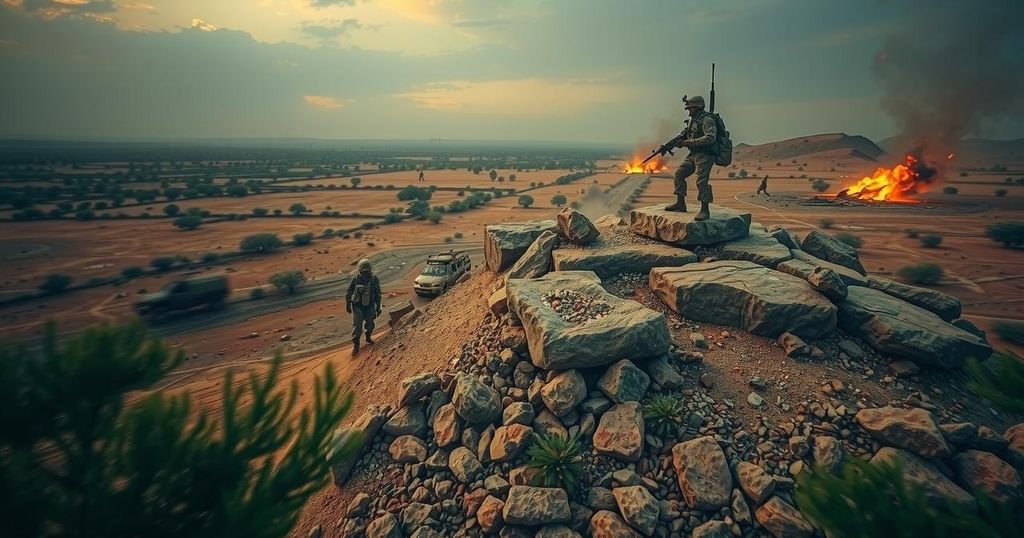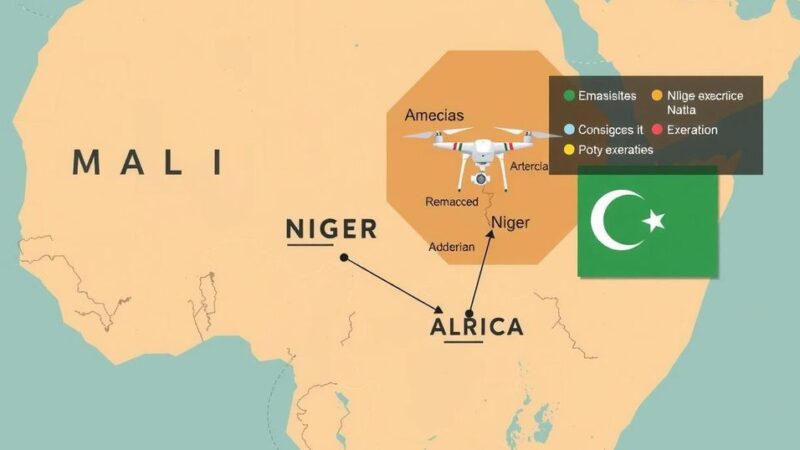Seven Wagner Group mercenaries were killed in Mali amidst rising violence attributed to Islamist militant groups. Their operations face criticism for potentially exacerbating local insecurity. A previous confrontation resulted in heavy casualties, emphasizing the perilous conditions for mercenaries in the Sahel region.
In a recent incident in Mali, seven Wagner Group mercenaries were killed, as reported by the agency Reuters. This event highlights the ongoing risks faced by Wagner forces operating in Mali, where they have been deployed to assist the military junta in combating various insurgencies. The Sahel region, particularly Mali, has seen a marked increase in violence attributed to extremist groups, complicating the security situation. Furthermore, a significant confrontation in July resulted in considerable casualties for Wagner forces during clashes with Tuareg rebels and Islamist factions near the Algerian border, underscoring the dangerous environment in which these mercenaries operate.
The latest attack underscores the growing instability in Mali, especially amid criticism toward Wagner Group for allegedly worsening the security and conflict dynamics in the Sahel. The involvement of private military contractors in state-level military support is increasingly scrutinized, necessitating a thorough examination of their impact on local security conditions and overall governance. Wagner’s activities have brought forth concerns regarding the escalation of violence and the eventual implications for Mali’s future stability. As such, reports continue to emerge detailing the precarious circumstances surrounding foreign mercenaries in this contentious region.
The Wagner Group is a Russian paramilitary organization that has gained notoriety for its operations in various conflict zones, including the African continent. In Mali, they are primarily engaged in supporting the military government against insurgent groups, including those aligned with al Qaeda and other Islamist militias. The Sahel region, where Mali is located, has witnessed a sharp rise in violence and insecurity due to the proliferation of extremist groups, resulting in increased militarization and foreign intervention. The dynamics of insurgency and counter-insurgency in this area pose significant challenges to both local governments and foreign operatives alike, with the situation remaining fraught with dangers.
In summary, the recent deaths of Wagner mercenaries in Mali reflect the severe risks associated with their military engagements in the region. As violence escalates and the involvement of such groups garners scrutiny, it is essential to evaluate the consequences of their actions on local populations and the broader security landscape in the Sahel. The conflict’s complexity continues to challenge both local authorities and foreign contractors, raising critical questions about the efficacy and impact of foreign military presence in unstable environments.
Original Source: m.economictimes.com






